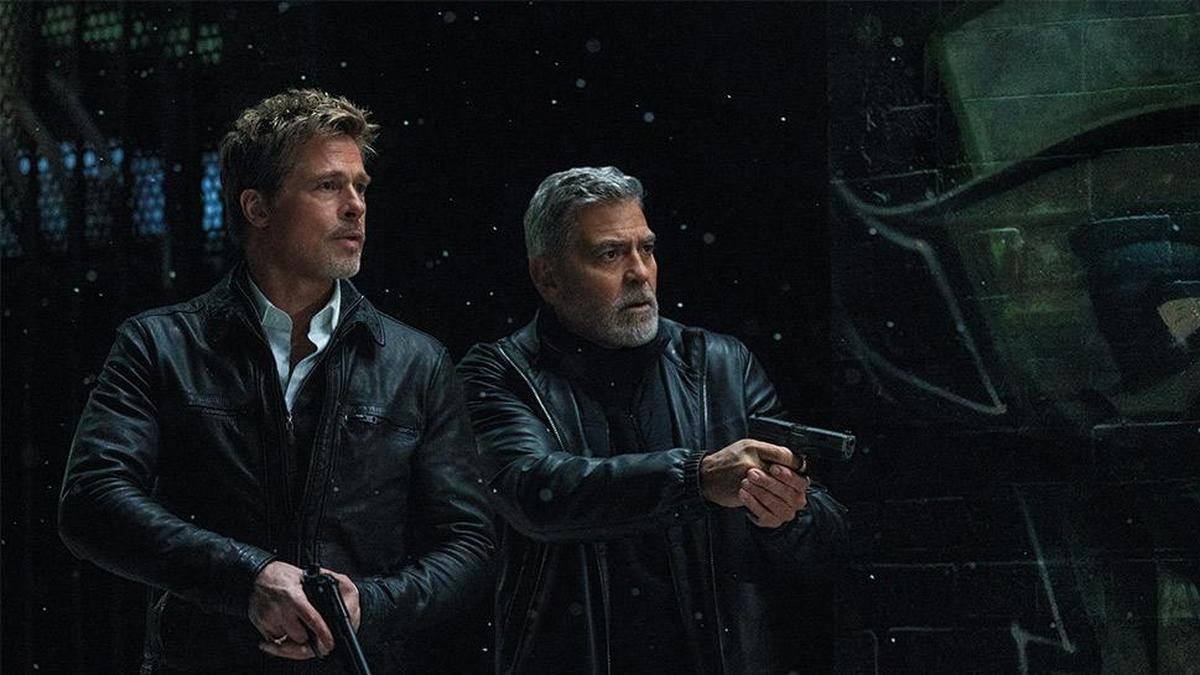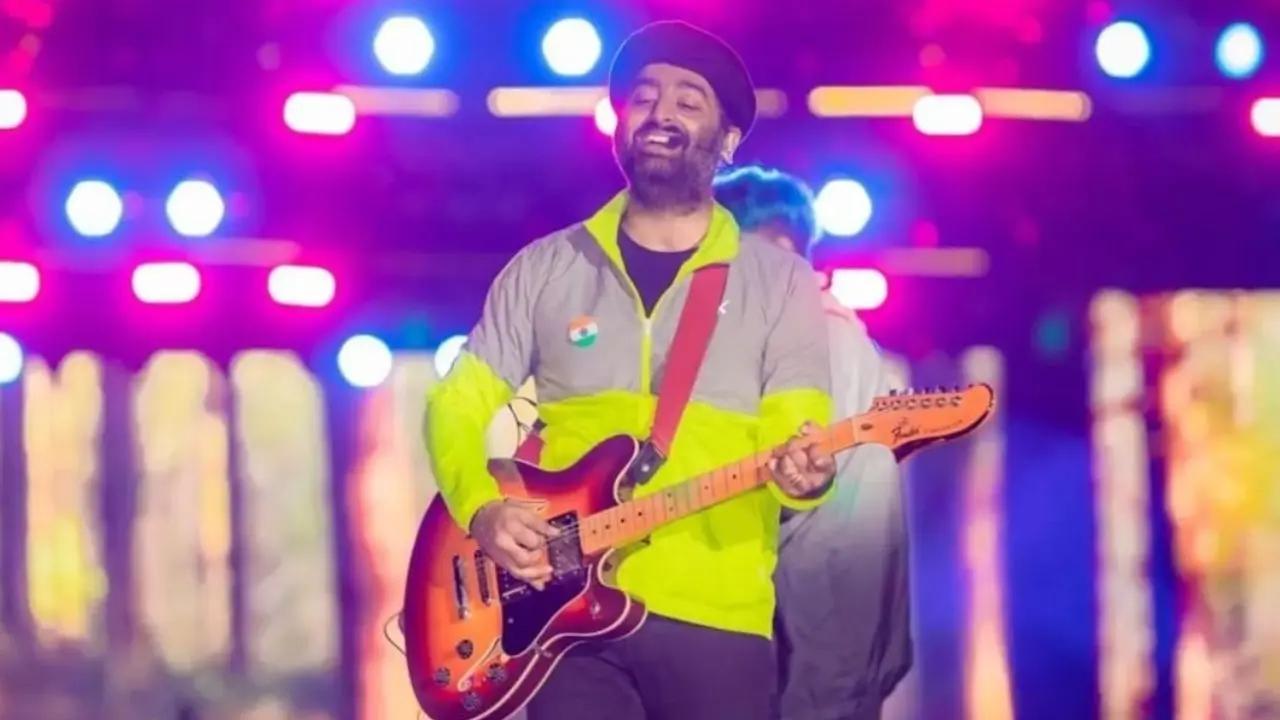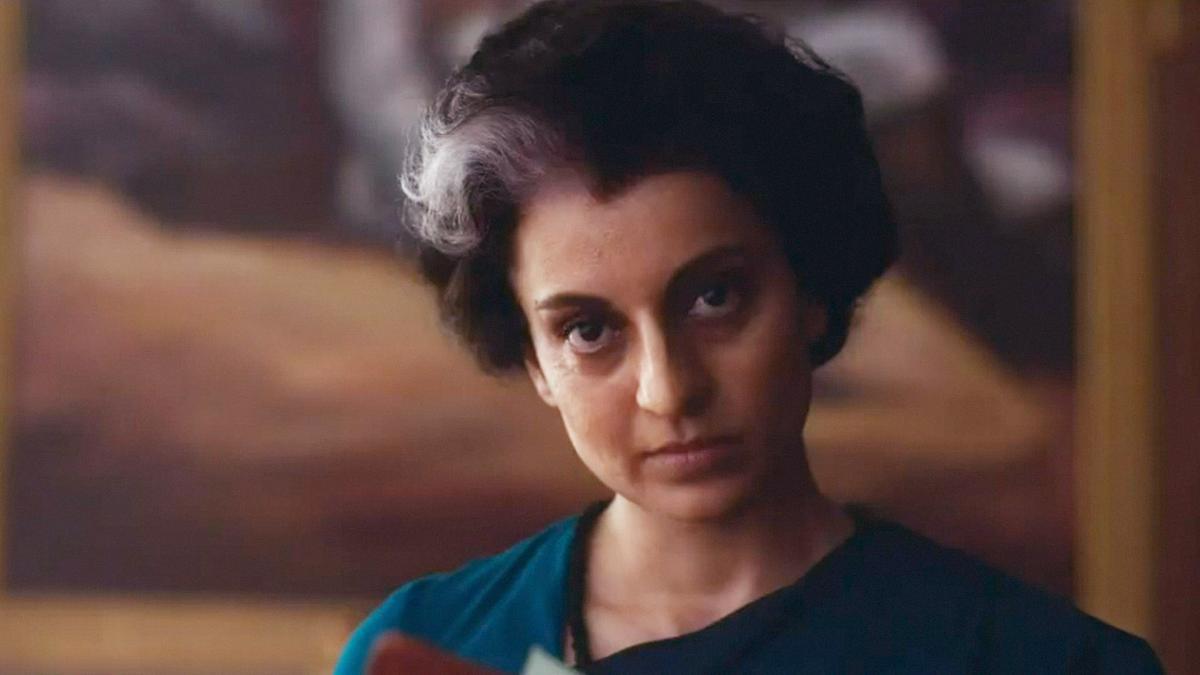
Director Jon Watts brings us his latest non-franchise endeavor with “Wolfs,” a film that manages to be both low-profile and high-profile simultaneously. This paradox is largely due to its leading stars, George Clooney and Brad Pitt, who are perhaps the last of a breed of Hollywood megastars whose mere presence could once book cinema seats. However, as “Wolfs” unfolds, it becomes evident that the film is banking on the nostalgia these stars evoke, leading to a comfortable, albeit somewhat unremarkable, cinematic experience.
Set in New York, “Wolfs” is a quirky caper about professional fixers embroiled in the chaos of a botched rendezvous. Clooney and Pitt share the screen as anonymous fixers—though it’s more apt to say they’re playing extensions of themselves—summoned by separate clients to mitigate the fallout of a very untidy evening. Amy Ryan portrays a politician in the middle of an election campaign who inadvertently ends up with a dead lover, prompting her to call Clooney for help. On the other side, Pitt is enlisted by the hotel’s owner to ensure silence around the incident. What ensues is a predictable yet entertaining clash of egos as both proclaim to be unmatched in their line of work.
From the outset, “Wolfs” hints at the dynamic and engaging pace reminiscent of the “Ocean’s” franchise but soon settles into a more leisurely flow. Clooney brings his hallmark suave, exuding a relaxed confidence that verges on nonchalance. Pitt, contrastingly, imbues his character with a scruffy charm, offering a spirited performance that feels both cheeky and over-the-top. Their chemistry, a blend of grumpy camaraderie and playful banter, is the film’s central appeal. The duo spars and reconciles like aging men who can’t quite remember why they’re quarrelling, channeling a sort of Butch and Sundance energy, albeit with more groans about bad backs and aching knees.
While their on-screen partnership provides considerable delight, “Wolfs” struggles to elevate itself beyond a mere showcase of Clooney and Pitt’s storied relationship. Director Jon Watts, who previously helmed Marvel’s Spiderman trilogy, appears content to let the leading men carry the weight of the film. This decision results in moments of genuine fun but also underscores the film’s thin narrative. The plot serves more as a vehicle to highlight the stars’ charm rather than a compelling story of its own.
.
The movie labors under the presence of its megastars, functioning as a sort of love letter to an era when star power alone could guarantee a film’s success. Clooney and Pitt represent some of the last actors who can draw attention with just their names, their charisma offering a temporary mask for the deficiencies in the script. This reliance on the leads works in spurts, eliciting smiles and laughter, but ultimately does little to push “Wolfs” into memorable territory. It is a testament to how much the cinematic landscape has changed; a pairing that once would have been a major event now merely sits as another option among many in a streaming queue.
A notable scene-stealer is Austin Abrams, playing “the Kid,” who adds a jolt of energy just as the narrative starts to sag. His character, the supposedly deceased lover who springs back to life mid-film, shifts the tone from buddy comedy to frenetic city-wide chase. Abrams’ portrayal of the motormouth character, heavy on nervous energy and haphazard explanations about drugs and mobsters, shines brightly. His kinetic monologue is one of the movie’s standout moments, briefly eclipsing the star power of his more seasoned co-stars.
Watts’ direction also indulges in genre homages, with the film nodding to “Pulp Fiction” through its grammatically peculiar title and even featuring a scene that pays tribute to Harvey Keitel’s iconic character. These references, along with classic tropes like MacGuffins and POV shots from car trunks, are sprinkled throughout. However, they do not cohere into a unified or particularly innovative piece; rather, they serve as nostalgic callbacks that reinforce the film’s reliance on its leading men’s legacy more than its own originality.
In conclusion, “Wolfs” is a film that coasts by on the considerable charisma of its stars rather than its craftsmanship. It’s enjoyable, occasionally clever, and effortlessly smooth, but not destined to be a standout. The plot may quickly fade from memory, but the pleasure of spending two hours in the company of Clooney and Pitt cannot be understated. They remind us that, even as the glitz of star power dims, their unique ability to captivate remains. “Wolfs” is now available for streaming on Apple TV, offering a breezy journey into nostalgia driven by two of Hollywood’s enduring greats.










